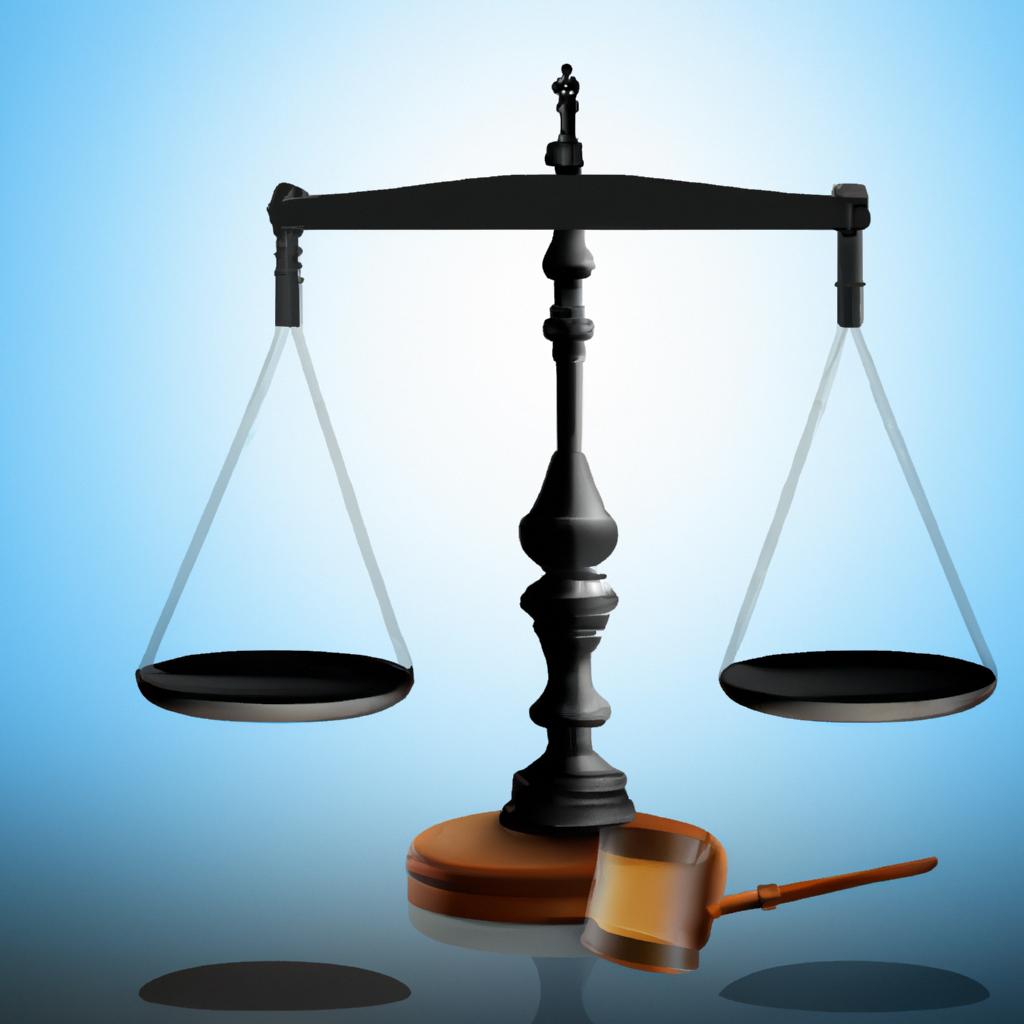As seasoned legal professionals at Morgan Legal Group, situated in the heart of New York City, we understand the importance of preparing for the inevitable. Crafting a will is more than just a legal document - it’s a comprehensive strategy to ensure your assets are allocated according to your wishes, providing peace of mind for both you and your loved ones. In this article, we will delve into the intricacies of preparing your will, shedding light on the essential considerations and steps to take in safeguarding your legacy.
Understanding the Importance of Drafting a Will
Ensuring that your assets are distributed according to your wishes after your passing is a crucial aspect of estate planning. By drafting a will, you can provide clarity and peace of mind to your loved ones during what can be a difficult time. A will allows you to designate beneficiaries for your property, specify funeral arrangements, appoint guardians for minor children, and even create trusts to protect assets for future generations.
Without a will in place, the distribution of your assets will be determined by the laws of intestacy, which may not align with your wishes. This can lead to disputes among family members, unnecessary taxes, and delays in the probate process. By taking the time to prepare your will with the help of an experienced attorney, you can ensure that your final wishes are carried out and provide for the financial security of your heirs.

Key Components to Include in Your Will
When preparing your will, it is crucial to include key components that will ensure your wishes are carried out effectively. One vital element to include is the identification of your beneficiaries, specifying who will receive your assets and in what proportions. It is important to be clear and detailed in this section to avoid any confusion or potential disputes among your loved ones.
Another essential component to include in your will is the appointment of an executor. This individual will be responsible for carrying out the instructions outlined in your will and ensuring that your estate is distributed according to your wishes. It is important to choose someone you trust and who is capable of handling the responsibilities that come with the role. Additionally, consider including provisions for any minor children or dependents, such as guardianship arrangements or creating a trust fund for their care and financial support.
Selecting an Executor for Your Will
When preparing your will, one of the most crucial decisions you will need to make is selecting an executor. This individual will be responsible for carrying out your wishes after you pass away. It is essential to choose someone who is trustworthy, reliable, and capable of handling the responsibilities that come with being an executor.
Here are a few key factors to consider when :
- Trustworthiness and reliability
- Organizational skills
- Financial acumen

Considerations for Creating a Comprehensive Will Document
When preparing your will, it is important to consider various factors to ensure that your document is comprehensive and legally sound. One key consideration is to clearly identify all your assets and liabilities, including real estate properties, bank accounts, investments, debts, and personal belongings. This will help prevent any confusion or disputes among your beneficiaries after your passing.
Another crucial aspect to consider is appointing a reliable executor who will be responsible for carrying out your wishes as outlined in your will. It is important to choose someone who is trustworthy, organized, and able to handle the responsibilities that come with executing a will. Additionally, consider including specific instructions for your funeral arrangements, charitable donations, and any other special requests you may have. By thoroughly considering these factors, you can create a comprehensive will document that accurately reflects your wishes and ensures a smooth distribution of your assets.
Q&A
Q: What is a will and why is it important to have one?
A: A will is a legal document that outlines how you want your assets and possessions to be distributed after your death. It is important to have a will to ensure that your wishes are carried out and to prevent any disputes among your loved ones.
Q: When should I start preparing my will?
A: It is never too early to start preparing your will. It is recommended to have a will in place as soon as you have assets or dependents that you want to protect.
Q: How should I go about preparing my will?
A: You can start by making a list of all your assets and deciding how you want them to be distributed. You can then consult with a lawyer to help you draft a legally binding will that accurately reflects your wishes.
Q: Can I update my will after it has been created?
A: Yes, you can update your will at any time by creating a new one or making amendments to the existing one. It is important to review your will periodically to ensure that it still reflects your current wishes and circumstances.
Q: What happens if I die without a will?
A: If you die without a will, your assets will be distributed according to the laws of intestacy in your state or country. This may not align with your wishes and could lead to disputes among your family members. It is always better to have a will in place to avoid any complications.
Insights and Conclusions
In conclusion, preparing your will is a crucial step in ensuring that your wishes are carried out and your loved ones are taken care of after you pass away. By taking the time to create a legally-binding document outlining your desires, you can have peace of mind knowing that your affairs are in order. So, don’t wait until it’s too late. Start the process of preparing your will today and leave a legacy that reflects your values and priorities. Your future self and your loved ones will thank you for it.
 Preparing Your Will: A Step-by-Step Guide
Preparing Your Will: A Step-by-Step Guide
Nothing in life is certain except death and taxes. While we may not like to think about it, we all know that one day our time on earth will come to an end. It’s important to prepare for this eventuality by creating a will – a legal document that outlines your wishes for the distribution of your assets after you’re gone. This can help ensure that your loved ones are taken care of and your final wishes are carried out. In this comprehensive guide, we’ll provide you with all the information you need to know about preparing your will, including the benefits, practical tips, and potential challenges.
Benefits of Having a Will
A will is a vital aspect of estate planning that offers numerous benefits to you and your loved ones. Some of the key advantages of having a will include:
1. Peace of Mind
Knowing that your affairs are in order and that your loved ones will be taken care of after you’re gone can give you peace of mind. Creating a will ensures that your wishes are clearly stated and helps avoid any family disputes over your assets.
2. Control Over Your Assets
Without a will, your assets will be distributed according to state laws, which may not align with your wishes. Having a will gives you control over how your assets will be divided, ensuring your loved ones receive the inheritance you intended for them.
3. Protection for Minor Children
If you have minor children, a will allows you to name a guardian to care for them in case of your death. This can prevent a lengthy court process and help ensure your children are raised by someone you trust.
4. Minimizing Taxes and Expenses
A well-crafted will can help minimize the tax burden for your beneficiaries and reduce legal fees associated with administering your estate.
5. Provides for Pets
Pets are members of the family too, and a will allows you to specify who will take care of them after you’re gone. You can also allocate funds for their care in your will.
Practical Tips for Preparing Your Will
Now that you understand the benefits of having a will, let’s go over some practical tips to help you prepare your will:
1. Consult with an Attorney
While there are DIY will kits available, it’s recommended to consult with an attorney to ensure your will is valid and legally binding. A lawyer can also guide you in creating a comprehensive and personalized will that meets your needs.
2. Make a List of Your Assets
Start by making a list of all your assets, including properties, investments, bank accounts, and personal belongings. This will give you a clear picture of what you have and how you want it to be distributed.
3. Choose an Executor
An executor is a person who will be responsible for managing your estate and ensuring your final wishes are carried out. Choose someone you trust and who has the skills and time to handle this role.
4. Decide on Your Beneficiaries
Your beneficiaries are the people who will receive your assets after your death. It’s important to carefully consider who you want to leave your assets to and be clear in your will to avoid any confusion or legal challenges.
5. Include Specific Instructions
Along with naming your beneficiaries, you should also include specific instructions on how you want your assets to be distributed. For example, if you have sentimental items, you may want to specify who receives them.
6. Update Your Will Regularly
It’s important to review and update your will regularly, especially after major life events like marriage, divorce, or the birth of a child. This ensures that your will reflects your current wishes and protects your loved ones.
7. Consider a Trust
In some cases, creating a trust may be a better option than a will. A trust can offer additional financial protection for your beneficiaries, particularly if you have minor or dependent children.
Challenges to Be Aware of
While creating a will can bring many benefits, there are also some potential challenges to be aware of:
1. Legal Requirements
A will must meet certain legal requirements to be considered valid and enforceable. Failure to meet these requirements can result in your will being deemed invalid by the court.
2. Potential for Disputes
Even with a well-crafted will, family disputes can still arise, leading to a lengthy and costly legal process. To minimize the chances of this happening, clearly state your wishes and ensure all legal requirements are met.
3. Inheritance Tax
Your beneficiaries may be subject to inheritance tax on the assets they receive from your estate. Understanding how this tax works and planning accordingly can help minimize the burden on your loved ones.
In Conclusion
Preparing your will is something that should not be put off. It’s a crucial aspect of estate planning that can provide peace of mind and ensure your loved ones are taken care of after you’re gone. By following these practical tips and being aware of potential challenges, you can create a comprehensive and legally valid will that reflects your final wishes. Remember to review and update your will regularly to ensure it always reflects your current circumstances. Consult with an attorney for any questions or guidance on creating your will.


